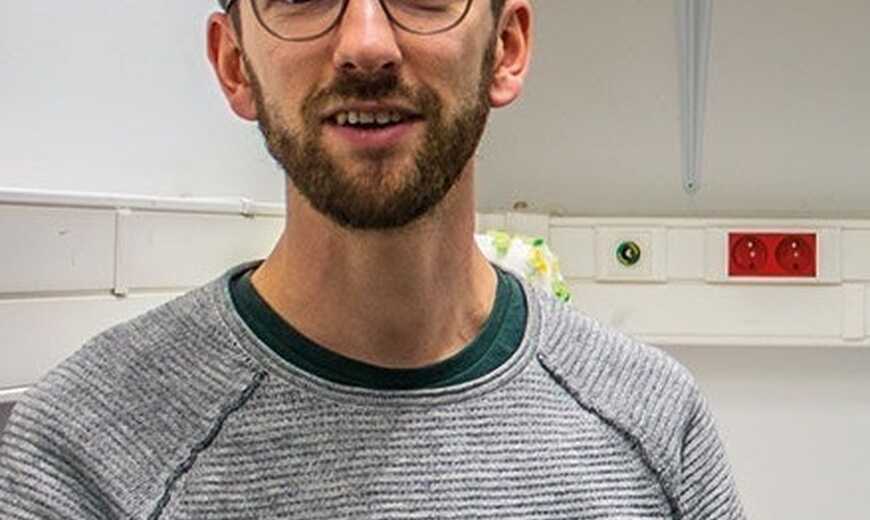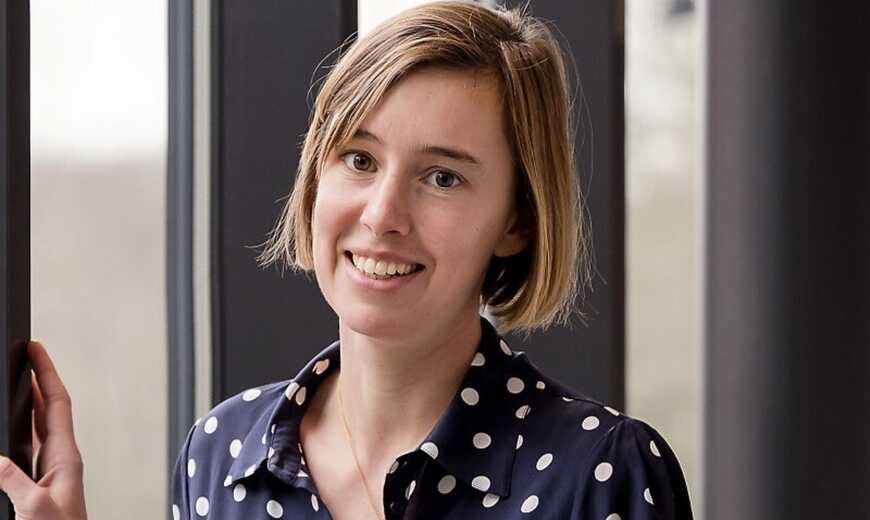[Interviewer]: Isabelle Simoes Loureiro, you are a Professor in Cognitive Psychology & Neuropsychology at UMONS. What are your main topics of interest ?
[ISL]: My research mostly focuses on semantic memory in Alzheimer’s disease. In short, semantic memory is the memory containing decontextualized knowledge, for example words and their meaning. In Alzheimer’s disease (AD), there is a disruption of the conceptual links that support semantic memory. People with AD loose access to words and their meaning, which produces anomia, verbal paraphasia, … My research investigates the specific semantic deterioration in AD, by focusing on two complementary parts :
First, a fundamental part, in which I try to better characterize the semantic memory, in particular its disorganization in AD. We do this by using e.g., semantic priming paradigms, that allow us to focus on the fine-grained links in the lexico-semantic network. Currently, we try to investigate the executive function and its links with semantic memory. We also try to better understand the role of sensorimotor components on the semantic memory, following an embodied approach. Indeed, in real-life, there are constant interactions between our internal representations and our environment.
My research also focuses on a second, more clinical aspect. Here, the objective is to develop clinical tools to investigate lexical or semantic memory deficits, in AD or in mild cognitive impairment. For example, we recently developed a new tool to assess early naming disorder in AD.
In the future, I am planning to develop more semantic memory care programs in order to propose evidence-based practice. I have just been awarded funding from the Foundation for Research on Alzheimer’s disease to work on care programs in AD.
[Interviewer]: As a researcher in cognitive psychology and neuropsychology, what drives you ? What are the “big goals” that you want to achieve in your career ?
[ISL]: Something that has always been important to me is that research is useful for clinical practice. I believe that clinicians and researchers benefit from working together. Before doing my PhD, I worked with AD patients as a clinical neuropsychologist in a hospital. Since then, I have always kept a strong interest in the clinical aspect of our work. As a researcher, I am very lucky that I get to collaborate with neuropsychologists in the hospital. I really believe that we are stronger together !
[Interviewer]: What are the specific aims of your new research project about memory care strategies?
[ISL]: The aim of this project is to test the efficiency of different memory care strategies. We will compare three different semantic memory care programs: (i) a semantic feature analysis program, based on a theoretical model of semantic memory, (ii) a sensory-motor stimulation technique based on embodied cognition, and (iii) a mixed intervention combining (i) and (ii). Those interventions aim to activate linguistic, conceptual and sensorimotor factors, to reinforce lexico-semantic representation. We hope to include 30 patients with AD who will be randomly attributed to one of the three intervention programs.
[Interviewer]: What are the main challenges that you observe in your field. Are there changes you expect to see in the coming years ?
[ISL] The main challenge I see for my field in the coming years is to establish the links between multidisciplinary aspects. I have already mentioned that I work closely with clinicians. I think we might need to even open up to other researchers, including for example engineers, neurologists, mathematicians. This is challenging, but we have a lot to gain by using multidisciplinary approaches to answer our research questions.
[Interviewer] The 2023 BAPS annual meeting will be held at UMons in May. Are you looking forward to it ?
[ISL] Of course ! I come every year. This year, we will even offer a symposium that aims to bridge the gap between the clinical and research. I hope to see you there !
Meet the lab series: Interview with Prof I. Simoes Loureiro
Written by Tim VantilborghSimilar articles
All articles
Meet the lab series: Interview with Dr. Benoit Galand
Benoit Galand, Professor of Educational Sciences at UCLouvain, emphasizes the importance of a scientific approach to understanding education, cautioning against broad applications of untested interventions and advocating for evidence-based practices. His research highlights the role of social relationships in student and teacher well-being, the limited predictive power of some psychosocial variables over time, and the complexities of translating research into effective educational policies. Galand is particularly interested in how education can address global crises and improve intervention implementation in real-world settings.
Read more
Meet the lab: Interview with Kobe Desender (KULeuven)
This interview was part of our January 2022 newsletter
Read more
Meet the lab series: Interview with Prof A. Calcus
Discover the intriguing world of auditory cognitive neuroscience with Prof. A. Calcus in this exclusive interview, where she delves into her ERC starter grant project, exploring adolescence as a potential sensitive period for auditory processing development. Get inspired by her insights on academic careers, multidisciplinary research, and the societal impact of psychological science.
Read more